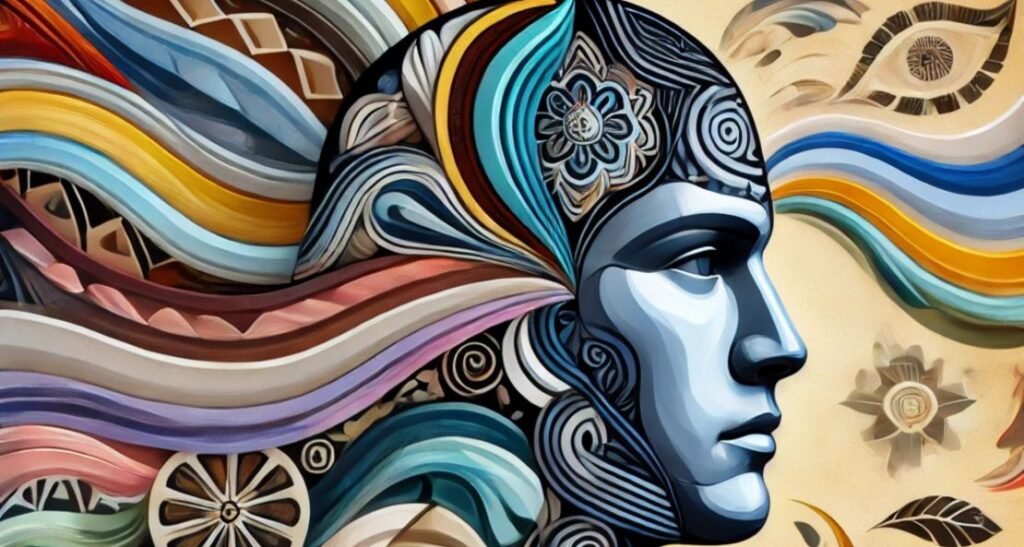TikTok’s endless parade of trends covers everything from dance moves to deep dives into identity – and now, one of the latest controversies is RCTA, a term that stands for “Race Change To Another.”
While some TikTok users view it as a harmless form of self-expression, others see it as insensitive and even offensive.
RCTA has ignited fierce debate, as it raises complex questions about cultural identity and appropriation.
So, what is RCTA, and why is it stirring up such intense reactions?
RCTA Meaning: What Does It Stand For?
RCTA, or Race Change To Another, describes a digital phenomenon where people attempt to adopt or explore a racial identity different from their own.
@lu2quared Replying to @Lu 璐 if you watch this whole thing, thank you I promise not all my posts are this serious, but this is something that I think needs to be clarified #rcta #ecta #rctaisntvalid ♬ original sound – Lu
This isn’t about undergoing physical changes; instead, users employ methods like “manifesting” or listening to subliminal audio to “transform” into another racial identity.
The trend largely centres on East Asian cultures, with some users saying they want to “become” Korean or Japanese, often inspired by an appreciation for K-pop, anime, or other aspects of Asian pop culture.
Why is RCTA Controversial?
The concept of RCTA touches on sensitive cultural issues, leading many to question whether it trivialises race and identity.
Critics argue that turning racial identity into something one can simply adopt or discard is not only tone-deaf but could be offensive to those who have lived experiences tied to their ethnicity.
Some view RCTA as a form of cultural appropriation, where racial identity is reduced to a trend rather than a meaningful part of a person’s life.
Although advocates of RCTA may claim it’s about appreciation or exploration, the impact on broader communities suggests a more complicated picture.
For people who have experienced racial discrimination or prejudice, the idea of “trying on” a race can seem like an insensitive simplification.
High-Profile Cases and Public Reactions
The debate around RCTA isn’t new, and public figures like Oli London have already drawn attention to these issues.
London, a British influencer, famously underwent a series of surgeries in pursuit of a “Korean” appearance to resemble K-pop star Jimin from BTS.
This public transformation sparked a wave of media attention and criticism, adding fuel to the conversation about race, identity, and respect for cultural boundaries.
Online, reactions to RCTA have varied wildly. On TikTok, some users mock the trend, creating parody videos that highlight how absurd or offensive it can appear.
Others have posted direct criticisms, calling it out as “ignorant” or “racist.”
One viral TikTok response states bluntly, “RCTA isn’t valid and is racist,” a sentiment that has resonated with many across the platform.
The Appeal of RCTA: What Motivates Users?
@kir4cha for my 씨발새끼 (cute) rcta audience out there, i hope this helps! – #fyp#rcta#transracial#korean#asian#andGO#japanese#chinese#ulzzang#kawaii#asianfisher#asiaboo#eastasian#racechangetoanother#pls#get#some#help ♬ Kimi No Toriko (Reverb) – Kophie & Rizky Ayuba
Despite the backlash, RCTA has drawn followers who see it as a form of self-exploration.
For many young users, TikTok is a space where they can experiment with identity, and RCTA may feel like a way to connect with cultures they admire.
In some cases, people describe RCTA as an escape from societal pressures tied to their own race or ethnicity, believing that digital spaces give them the freedom to explore different identities.
However, this raises a critical question: Can a person truly “adopt” a different race, even in a virtual world?
Is there a line between cultural appreciation and appropriation, and how does RCTA blur that line?
While many followers of RCTA feel it’s a personal choice, the trend has broader cultural implications that cannot be ignored.
Social Reactions and Ethical Concerns
The criticisms of RCTA are multi-faceted. Many argue that it reduces race to an accessory, turning it into something that can be changed like an outfit or hairstyle.
This trivialisation can be hurtful to communities for whom race is an inseparable part of their experience.
For those who encounter bias or discrimination because of their race, RCTA can come across as a tone-deaf dismissal of their struggles.
Others worry that RCTA normalises superficial understandings of race, which can lead to problematic stereotypes.
By promoting the idea that racial identity can be “adopted” or “manifested,” RCTA risks reducing complex cultural identities to simplistic labels or fads.
Psychological and Social Implications of RCTA
RCTA also raises deeper psychological questions about identity and self-perception.
While some may see it as harmless self-expression, others might experience confusion or even dissonance as they explore racial identities online.
Identity is complex, and digital spaces can offer both freedom and challenges in shaping how people see themselves and others.
Moreover, the idea of changing racial identity for self-expression or personal enjoyment can have unintended social consequences.
Communities are built on shared experiences, and RCTA’s emergence in online spaces could disrupt how we understand authenticity, integrity, and trust in digital interactions.
Final Thoughts on RCTA’s Impact
The popularity of RCTA on TikTok offers insights into the challenges of navigating identity in an increasingly digital world.
As trends like RCTA continue to surface, they push us to think about where the line falls between admiration and appropriation, and how digital interactions influence our understanding of race and culture.
While some might brush RCTA off as just another passing fad, the cultural questions it raises are both relevant and worthy of further discussion.
In the end, RCTA encourages a larger conversation about respect, sensitivity, and the impact of our digital identities on our real-world communities.


